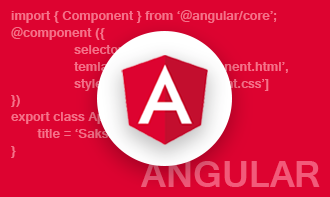Angular JS

ANGULAR JS: Do you dream of creating modern and interactive single-page applications (SPAs)? Then AngularJS, a powerful JavaScript framework, could be your key! Shaksham's AngularJS course provides a structured and beginner-friendly approach, allowing you to:
- Grasp the fundamentals: Gain a solid understanding of core AngularJS concepts like components, directives, services, and modules.
- Embrace MVVM architecture: Master the Model-View-ViewModel (MVVM) architecture, promoting code organization and maintainability.
- Build dynamic SPAs: Craft engaging and responsive web applications that offer seamless user experiences.
Why Choose AngularJS?
Here's why AngularJS is an excellent choice for web developers:
- Simplified Development: Focus on building functionalities, not low-level browser interactions, with pre-built features and functionalities provided by AngularJS.
- MVVM Advantage: Leverage the MVVM architecture to separate concerns and improve code maintainability.
- Two-Way Data Binding: Ensure automatic synchronization between the user interface and underlying data, simplifying development.
- Large Community and Resources: Benefit from a vast community of developers and extensive learning resources.
Unlock Your Web Development Potential with Saksham:
- Expert-Led Video Lectures: Gain clarity with concise and engaging videos delivered by experienced instructors.
- Interactive Exercises and Projects: Apply your knowledge through hands-on exercises and real-world projects, solidifying your skills and building a portfolio.
- Supportive Learning Community: Connect and collaborate with fellow learners and instructors in a friendly and encouraging environment.
Start building your future in web development with Saksham! By enrolling in this AngularJS course, you'll gain the essential skills and knowledge to create dynamic and user- friendly single-page applications that stand out from the crowd.
Embark on your web development journey with Saksham today!














